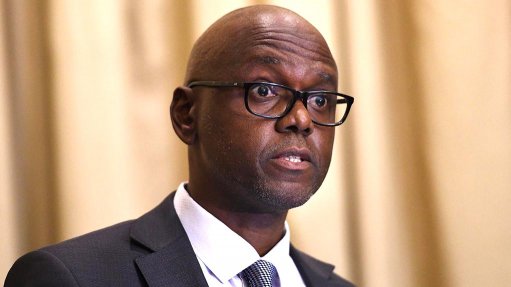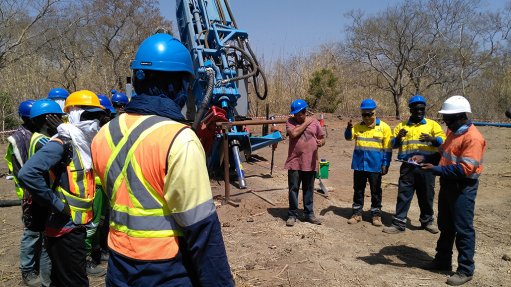Secrets, culture clashes and storytelling: What is holding mining innovation back?
Innovators in the mining and resources industry must tell their stories better, be more business-minded and truly understand their customers’ needs if they are to attract the investment required to bring their technology to market, according to a panel of experts at the International Mining and Resources Conference (IMARC).
In addition, investors themselves – whether venture capitalists or operators – need to be prepared for failures and take a more collaborative approach towards sharing IP to create an environment that encourages innovation.
The keynote panel discussion on Day 3 of IMARC 2023, titled, Connecting Technology and Investment: How this will Drive Innovation, heard from investors and product developers on the challenges they see facing the METS sector.
Charles Gillies, Director, RCF Jolimont Mining Innovation, said Australia’s METS sector is a world leader, yet it was struggling to tell its story to both its customers and to the wider community. Mr Gillies went on to explain that Australian ranks amongst the best in the world when it comes to innovation in engineering but lamented the fact that the broader public is largely unaware of the industry’s achievements and global leadership.
“We often talk about Australia’s automotive manufacturing heritage, but the METS sector is now a major employer and exporter. Yet, it’s not telling its story very well,” he said.
“This lack of storytelling results in poorer outcomes for operators as great innovations and valuable ideas end up not being implemented and ultimately forgotten.”
Rob Adamson, Executive Chairman at RFC Ambrian agreed, and reflected on why the METS sector hasn’t embraced storytelling in the same way as other sectors have.
“Scientists don’t want to be entrepreneurs and miners don’t want research programs on their sites, so therefore only 10% of really good science makes it into industry,” he said.
Psychological factors are also holding a lot of innovation back. The panel reflected on issues where long-term employees of mining companies rejected new technology that challenged or refuted their traditional ways of operating or highlighted either inefficient or less-accurate models or systems. The way forward, they said, was for the METS sector to improve their “soft” or inter-personal skills to breakdown these barriers and encourage collaboration, which in turn will lead to greater investment.
“If you fail because there is something fundamentally wrong with your technology, that's okay. If it fails because of something you can influence or change, that’s deeply disappointing. Too often people are unwilling to accept new innovation because it goes against their own routine and that’s really hard to change,” said Mr Adamson.
The panel also discussed the importance of getting the underlying business operations right to secure investment.
Mr Gillies said, “The challenge we see with young firms is that coming up with a really good, innovative idea is incredibly hard. Creating a good business is equally as hard. We see companies focus on the former at the expense of getting the business right, and that makes it hard to invest in. Nothing ever goes smoothly, nothing ever goes to plan, so having an experienced management team is key to riding those challenges.”
The panelists agreed that the inclination of operators to lock everything up under Confidentiality Agreements was stifling innovations. Innovators need to understand the size of a potential market, where the pain points of an operator are, and how they can be solved in a practical manner.
Charles Gillies said, “We often see the operators putting their foot on IP by restricting access to everything. It is unreasonable to assume that innovators are willing to invest the time and effort into projects without knowing the size of the problem or the level of competition within the sector.”
To ensure innovation continues to address the challenges facing the industry, the panelists agreed that collaboration and the sharing of knowledge is the most efficient action that needs to be taken. IMARC is the leading forum in Australia to connect industry leaders, government and the broader business community to facilitate these conversations.
Comments
Press Office
Announcements
What's On
Subscribe to improve your user experience...
Option 1 (equivalent of R125 a month):
Receive a weekly copy of Creamer Media's Engineering News & Mining Weekly magazine
(print copy for those in South Africa and e-magazine for those outside of South Africa)
Receive daily email newsletters
Access to full search results
Access archive of magazine back copies
Access to Projects in Progress
Access to ONE Research Report of your choice in PDF format
Option 2 (equivalent of R375 a month):
All benefits from Option 1
PLUS
Access to Creamer Media's Research Channel Africa for ALL Research Reports, in PDF format, on various industrial and mining sectors
including Electricity; Water; Energy Transition; Hydrogen; Roads, Rail and Ports; Coal; Gold; Platinum; Battery Metals; etc.
Already a subscriber?
Forgotten your password?
Receive weekly copy of Creamer Media's Engineering News & Mining Weekly magazine (print copy for those in South Africa and e-magazine for those outside of South Africa)
➕
Recieve daily email newsletters
➕
Access to full search results
➕
Access archive of magazine back copies
➕
Access to Projects in Progress
➕
Access to ONE Research Report of your choice in PDF format
RESEARCH CHANNEL AFRICA
R4500 (equivalent of R375 a month)
SUBSCRIBEAll benefits from Option 1
➕
Access to Creamer Media's Research Channel Africa for ALL Research Reports on various industrial and mining sectors, in PDF format, including on:
Electricity
➕
Water
➕
Energy Transition
➕
Hydrogen
➕
Roads, Rail and Ports
➕
Coal
➕
Gold
➕
Platinum
➕
Battery Metals
➕
etc.
Receive all benefits from Option 1 or Option 2 delivered to numerous people at your company
➕
Multiple User names and Passwords for simultaneous log-ins
➕
Intranet integration access to all in your organisation


















